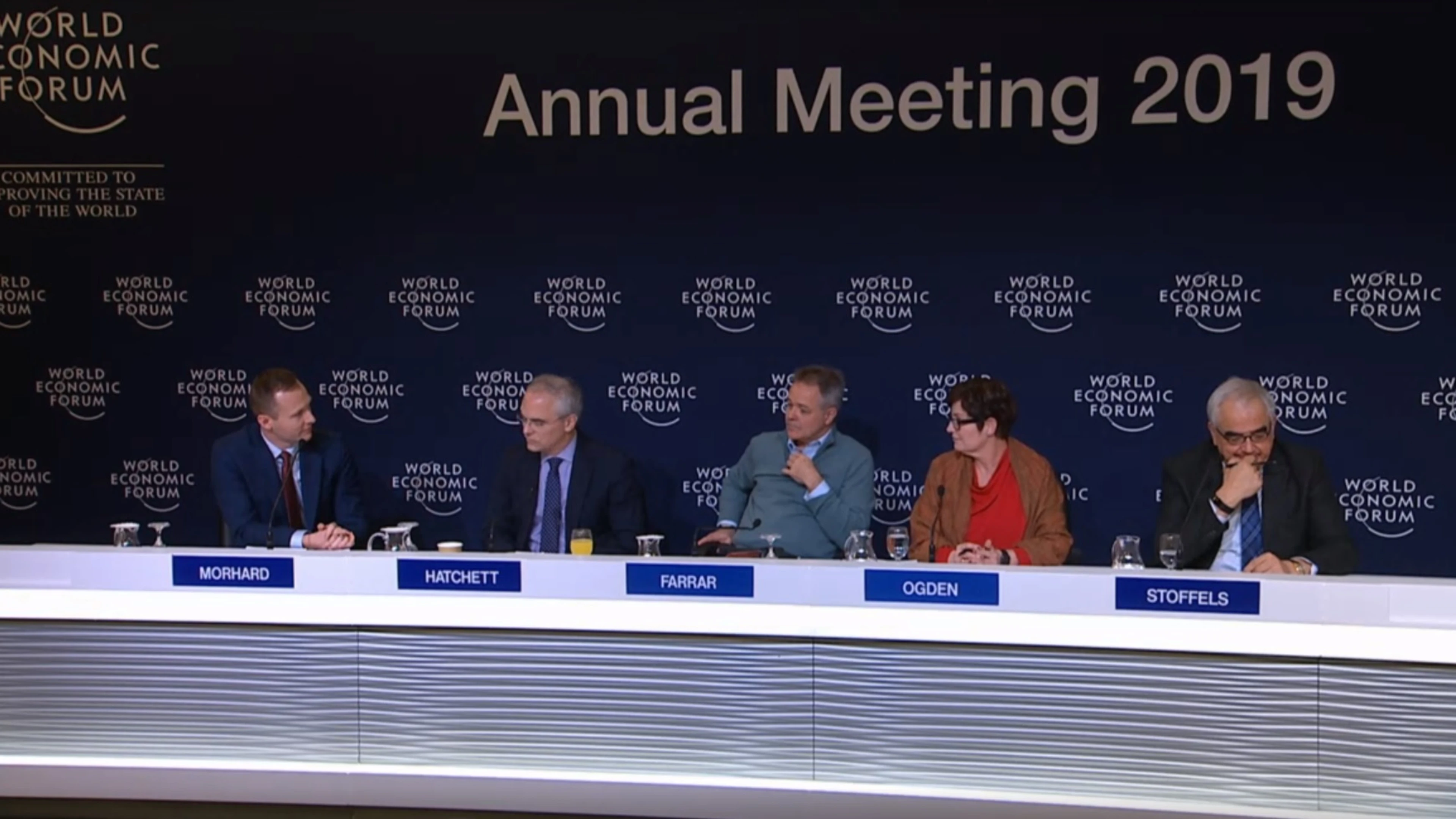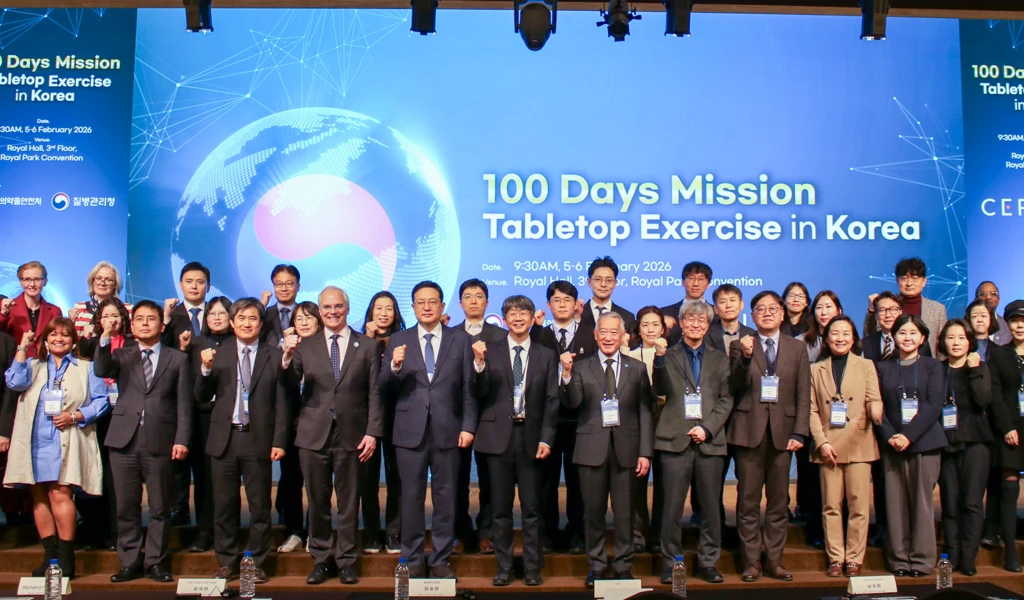The United Kingdom has pledged £10m in funding as part of a commitment to join the Coalition for Epidemic Preparedness Innovations (CEPI) and support its mission of developing new life-saving vaccines to combat emerging infectious diseases and prevent future epidemics. Following outbreaks of Nipah, Lassa and Ebola in 2018 this mission is more important than ever.
This UK commitment was announced today by Richard Hatchett, CEO of CEPI, at the World Economic Forum Annual Meeting.
"I'm delighted that the UK is joining the coalition and helping to fund our vital work. This commitment by the UK government will support leading research that will help develop a new generation of vaccines with the potential to save millions of lives both here and abroad."
Richard Hatchett was joined by Paul Stoffels (Vice Chair of the Executive Committee and Chief Scientific Officer), Jeremy Farrar (Director, Wellcome Trust), Ryan Morhard (Project Lead, Global Health and Healthcare Industries, World Economic Forum), and Lydia Ogden (Associate Vice-President, Global Enterprise Policy, MSD).
Growth of the coalition
Speaking at the press conference at Davos, Hatchett highlighted how the coalition has continued to grow over the past 2 years.
In 2017, five investors—Norway, Japan, Germany, the BMGF, and Wellcome—provided CEPI's first contributions. Since that time the European Commission, Australia, Belgium, and Canada have also made contributions, Ethiopia and Rwanda have signed MoUs with CEPI, and the Government of Ethiopia is preparing a financial commitment to CEPI.
In the past few weeks CEPI has announced that both Canada and Australia have renewed their commitments, in addition to the announcement of the United Kingdom's generous contribution of £10 million.
"CEPI has changed the way we think about epidemics...CEPI is more important today than it was 2 years ago. It has laid a great foundation for changing the way with think about the development of vaccines for diseases which we all have to appreciate will never have a true commercial return"
CEPI's vaccine portfolio
Hatchett also described the growth of CEPI's vaccine portfolio.
To date, CEPI has nine partnership agreements established, with partners ranging from academic institutions to biotech firms to large multinational corporations. Across these partnerships, CEPI is supporting a portfolio of 17 vaccines.
CEPI has committed over US$ 270 million to develop vaccines against Nipah, Lassa Fever, MERS, and other diseases. In recent weeks, the coalition has expanded the number of priority pathogens to five, issuing our third call for proposals and inviting submissions to develop vaccines against Chikungunya and Rift Valley Fever.
"MSD felt, and still does, that CEPI is absolutely essential to global health security and that's why we were in involved from the get go and remain committed as a partner"
He also discussed our first investments to tackle Disease X — the disease we don't know about, the emerging infectious disease with the potential to cause a pandemic — through partnerships with Imperial College in London and the University of Queensland in Australia.
Hatchett explained that the platform technologies they are working on have the potential to transform the way in which we develop vaccines. He added that if they work — and early indications are positive — we are looking at reducing the time it takes to develop a vaccine from years to weeks.
CEPI is a very important vehicle in the future of research for vaccines for global health security. Research and development in vaccines is a long term path...you have to have sustained research, early stage development, late stage development, combining academic, and other types of research themes with industry in order to get to the final product. And that's where CEPI is such an important catalyst on bringing academic and industry together to get ready for the next set of outbreaks"
Future plans
Hatchett closed his remarks by laying out CEPI's plans for the coming months.
He explained that we will be announcing more partnerships to fight Disease X, Ebola, and other diseases and that we will soon be initiating the first clinical trials of vaccines supported by CEPI.
You can watch the full recording of the press conference below:



.webp)